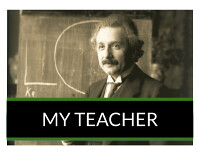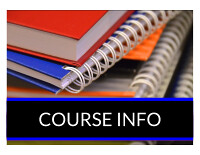[SS] Social Studies 7 Semester B (2 of 2): Extended Campus (SM)
Video Transcript: Course Intro
Welcome to Medieval and Early Modern Times! This course explores the social, cultural, and technological changes that occurred in Europe, Africa, and Asia in the years AD 500–1789. First, you review the ancient world and how archaeologists and historians uncover the past. Then, you study the history and geography of great civilizations that grew around the world during medieval and early modern times.
In this second segment of the course, you study the Renaissance, Reformation, and the Age of Exploration. You examine how civilizations met and started trading. You learn about the exchange of ideas, beliefs, goods, and technologies. Next, you learn about the resulting growth of Enlightenment philosophy. It focused on the concepts of reason and authority. Part of that was recognizing the natural rights of human beings and questioning the divine right of kings. It also helped to grow science and discoveries. Finally, you assess the political forces let loose by the Enlightenment. This included the rise of democratic ideas. These ideas continue to influence the world today.
You begin by exploring Early Modern Asia. This includes the Korean dynasties, the Qing Empire, Tokugawa Japan, and Southeast Asia. Moving west, you discover the empires in Persia, India, the Middle East, and Russia. Each lesson explores the culture, history, and changes in the region.
Next is the study of the Renaissance from its start on the Italian peninsula to how it changed Europe. You explore its origins in Greek and Roman ideas. This revival brought about concepts like humanism and Machiavellianism. You learn how these influenced Renaissance literature, architecture, and music. A video explains the impact of artists like Raphael, Donatello, Michelangelo, and Leonardo da Vinci.
Renaissance math and science come alive as you read about Blaise Pascal, Nicholas Copernicus, and Isaac Newton. Their inventions and discoveries changed the world both at the time and today. You review the ideas of Francis Bacon and René Descartes. These provide you with the origins of the scientific method and reasoning.
The course then explores the Reformation from early challenges to the church to the Counter-Reformation. You examine the changes in Europe brought about by Martin Luther, John Calvin, and William Tyndale. You observe the rise of Protestantism and how King Henry VIII changed England and the world. You conclude with medieval Spain. This includes the golden age of cooperation between several religions, the Spanish Inquisition, and the Reconquista of the Iberian Peninsula by Christians.
The Age of Exploration takes you off the continent of Europe. You set sail with the Vikings, Portuguese, Spanish, French, Dutch, and English. You explore up and down the Americas, including Quebec, New Amsterdam, Jamestown, Tenochtitlán, and Cusco. From there, you examine the Columbian Exchange of crops, animals, and diseases. You learn how it altered several continents. This led to a change in the world economy, including the triangular trade of goods, services, and slaves from Africa. Next, you review how Spanish missionaries came to the New World. You read the beliefs of American Indians and how they were treated by the newcomers. You also study the Pilgrim and Puritan beliefs that brought these groups to America.
The course continues with revolutions in Europe. First, you examine the Enlightenment and famous thinkers John Locke, Charles Montesquieu, and Adam Smith. Their ideas led to political, cultural, and economic change. This happened through multiple wars and exciting leaders like Joan of Arc and Catherine the Great. Finally, you explore 17th and 18th century European society through changes in art, music, and literature.
The class concludes with a look at the US Revolutionary War and the reasons leading to it. Taxes, the French and Indian War, and changing colonial alliances all led up to a Declaration of Independence and a new constitution.
Throughout the course, you examine and analyze readings, biographies, videos, and other materials that paint a picture of historical topics. Discussions with peers help you to think creatively and critically about topics. The projects that span the course are designed to develop and sharpen your writing skills.


